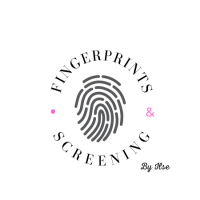Pennsylvania Gaming License application
The process for applying for a gaming license in Pennsylvania may vary depending on the type of license you wish to obtain. Pennsylvania has a detailed regulatory framework for various forms of gambling activities, including casinos, racetracks, and online gambling. Here are some general steps to follow when applying for a gaming license in Pennsylvania:
- Identify the type of license:
Determine the specific type of gaming license you need based on your intended activity. For example, if you plan to operate a casino, you will need a casino gaming license. If you want to offer online gambling services, you'll need to apply for an online gaming license. - Consult the Pennsylvania Gaming Control Board (PGCB):
The PGCB is the government agency responsible for overseeing the regulation of the gambling industry in Pennsylvania. Visit their official website and review the requirements and guidelines applicable to the type of license you wish to apply for. You will also find the necessary forms and documents on their website. - Complete the application forms:
Once you have obtained or downloaded the required forms, fill them out completely and accurately. These forms may require personal information, financial data, business structure details, and other relevant information. Ensure that you provide all requested information and include any necessary attachments. - Pay the application fees:
When submitting your application, you will need to pay the applicable fees. The costs can vary depending on the type of license you are applying for and the scope of your operations. Make sure to make the payment in the specified manner as indicated in the guidelines. - Undergo background checks:
As part of the application process, extensive background checks will be conducted on the applicant(s) and any affiliated individuals or entities. This often includes criminal background checks, financial investigations, and evaluating the reputation and integrity of the applicant. You may also be required to provide your fingerprints for processing. - Inspection and approval:
Depending on the type of license, the PGCB may require a physical inspection of your facilities before making a final decision on your application. They may also reach out to other relevant government agencies and stakeholders for additional information or advice. Ultimately, the PGCB will review your application and determine if you qualify for a Pennsylvania gaming license.
It's important to note that this is a general description of the process, and specific requirements and procedures may vary depending on the type of license and other factors. It's advisable to consult the most up-to-date information and guidelines provided by the Pennsylvania Gaming Control Board and seek legal advice from a professional in this field.
Different Types of Gaming Licenses in Pennsylvania:
In Pennsylvania, there are various types of gaming licenses available, depending on the type of gambling activity you wish to engage in. Here are some of the key gaming licenses:
- Casino Operator License:
This license allows you to operate a physical casino in Pennsylvania. It includes different categories such as slot parlor license, resort casino license, and stand-alone casino license. - Slot Machine License:
This license enables you to offer slot machines at a specific location, such as a racetrack or a gaming hall. - Racetrack Operator License:
This license allows you to operate a racetrack where bets can be placed on horse racing. - Table Game Operator License:
This license permits you to offer table games such as blackjack, roulette, and poker at a physical casino. - Sports Wagering Operator License:
This license enables you to offer sports betting at a physical casino or through online platforms. - Online Gaming Operator License:
This license allows you to offer online casino games and/or online sports betting to residents of Pennsylvania.
Additionally, there are other specific licenses and permits for manufacturers and suppliers of gaming equipment, providers of gaming systems, and more.
It's important to note that each type of license has its own specific requirements and procedures for application and compliance. The Pennsylvania Gaming Control Board is responsible for issuing and regulating these licenses. It's advisable to consult their official website for the most up-to-date information on each type of license and their respective requirements.

Nathan
op 27 Aug 2025